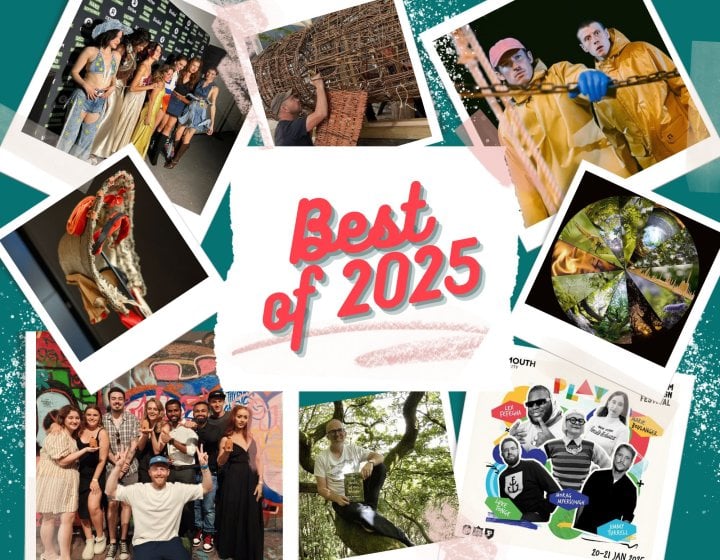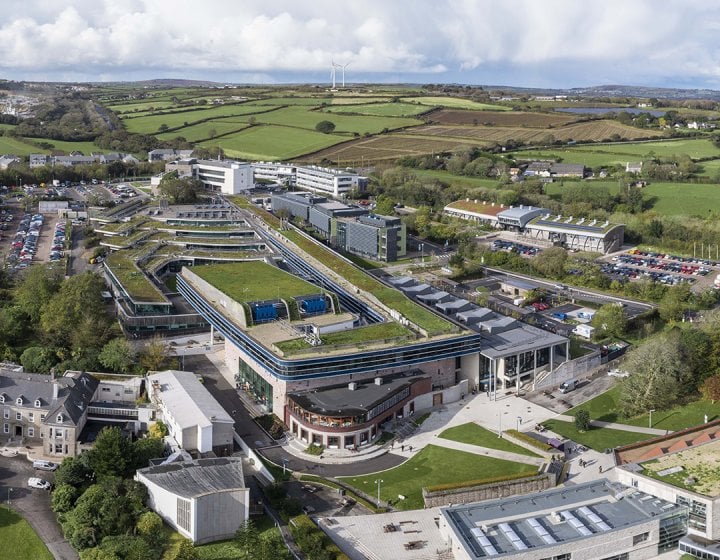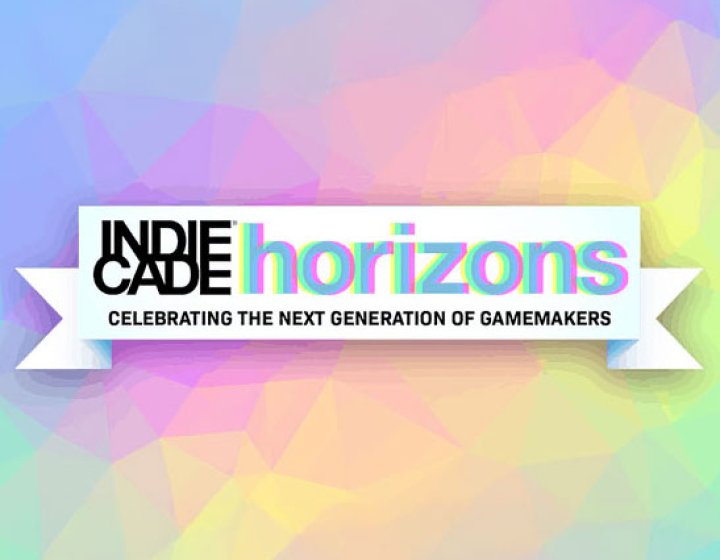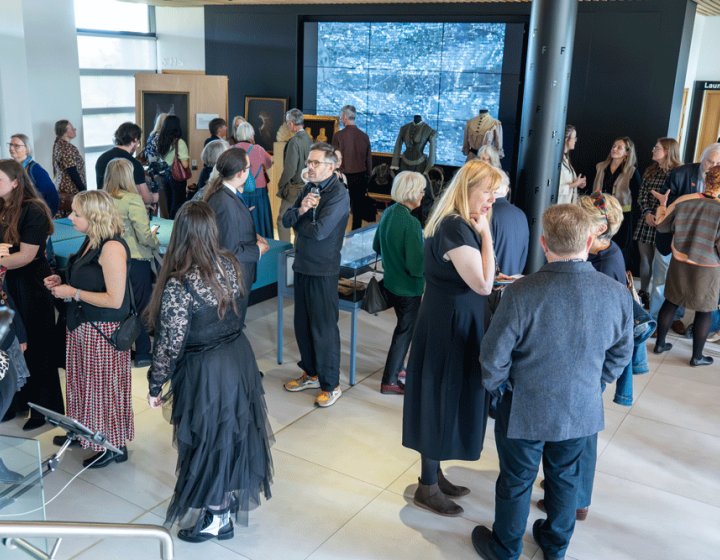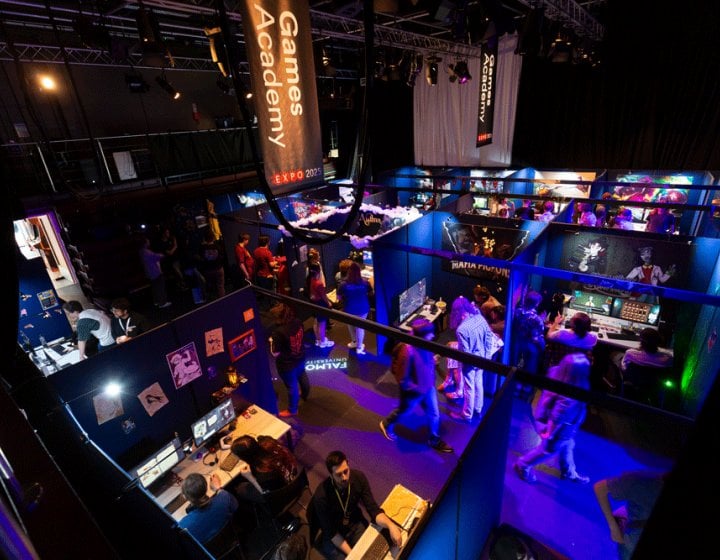Creative Intelligence for a Changing World
09 October 2025
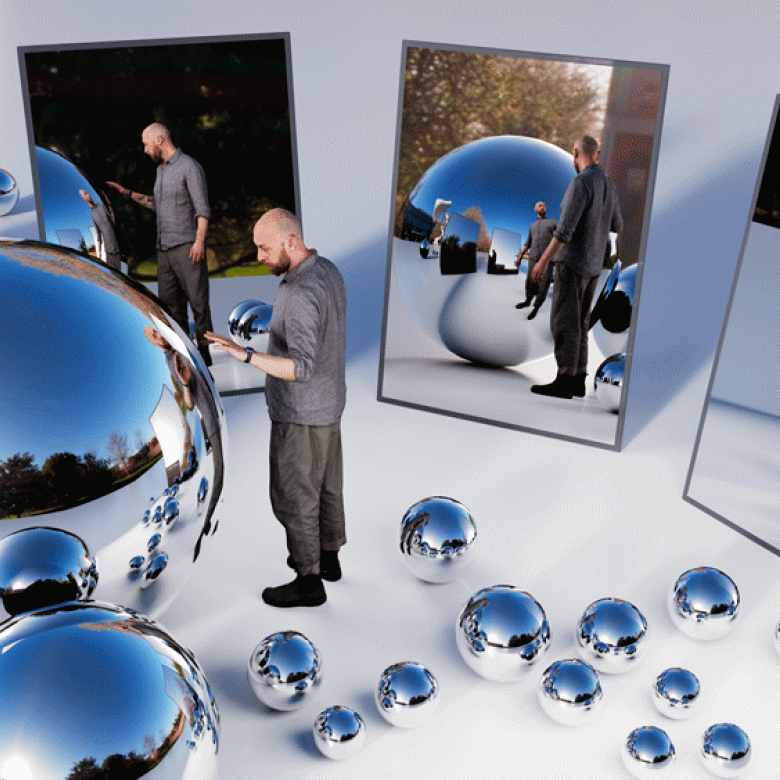
Professor Lee Miller, Head of Postgraduate Research and Professor of Performance explores the research work the Centre for Blended Realities is doing at the bleeding edge of creativity and technology and how this can help businesses adopt new technology with confidence.
Technology is evolving at a pace that most organisations struggle to keep up with. The advent of artificial intelligence, immersive media and wearable devices is reshaping how we work, communicate and compete as individuals, a society and businesses.
For business leaders, the opportunity of change has always been balanced with risk – in this age of technological advancement the risks can be choosing the wrong technology, investing too early and moving too slowly. They all lead to losing competitiveness.
This moment though undoubtedly is a time to act. The technological tools do and will increasingly matter, so as researchers and businesses leaders we share a need to ask how, why and when to adopt them.
Falmouth University’s new creative technology research hub Centre for Blended Realities is placing Cornwall at the forefront of the development and adoption of this new field, exploring how new technology can help individuals and businesses be more creative and do more and what it means for our culture and society.
We’ll be making this research and insights accessible through our Launchpad Futures incubation programme and business support facility and Academy of Continuing Education’s (ACE) CPD and training offers. This is because businesses exploring the adoption of new technologies in dialogue with research stand a better chance of embedding technology in ways that deliver long-term value.
These opportunities will present ethical considerations. Because our research will bring critical and creative thinking about innovation and creative technology, rather than being driven by product cycles and specific applications, our value will also lie in helping others to develop ethical frameworks. This helps ensure that technologies enhance our human capabilities and experiences rather than compromise them.
Pathways for Lifelong Learning
Given the speed and scale of technological change, the World Economic Forum predicts that by 2030 - in only five years’ time - nearly 40% of workers’ core skills will have shifted, with creativity, resilience, flexibility and curiosity among the fastest-growing needs. These key competencies directly shape productivity, innovation, and business growth.
Future competitiveness and adaptability hinge on a business culture of lifelong learning. Businesses will need staff who can continually adapt to new tools, shifting workflows, and emerging markets. Using insights gained from CBR research, ACE courses are exploring training needs to address this reality. Their professional development courses reflect the essential questions of how to use technology; explore why it matters for their sector and when adoption makes strategic sense. Alongside ACE, Launchpad Futures supports access to our cutting-edge research and networks.
Together these initiatives create a regional talent and business growth pipeline, building the skills, creativity, and confidence to thrive in fast-changing markets.
Creating new knowledge for using technology
From autumn 2025, we’re excited to enter a new phase at CBR as we welcome new professors whose work has demonstrable impact in areas including digitally enabled healthcare and supporting children’s wellbeing through immersive storytelling. Collectively, they have advanced research and practice in virtual and extended reality, AI-supported methods and human-centred simulation.
Their innovations have been implemented within NHS services and recognised through national programmes (including Health Education England’s VR initiatives and e-Learning for Healthcare), which have supported workforce development and simulation at Trust level and across wider professional communities. They have developed mixed-reality play kits that prepare young patients for MRI scans without general anaesthesia and XR training that strengthens clinical empathy and non-technical skills.
Together, this breadth of expertise enables the Centre to show how intangible skills and cultural practices can be identified, applied and transferred into new business contexts using innovative technologies: embedding culture, experience, and tacit knowledge into future-ready processes. In doing so, research lays the foundations for business protocols that apply creativity to scalable value.
Cornwall as a Catalyst
Cornwall has distinctive advantages in the developing technological landscape. Its creative economy, close-knit communities and spirit of collaboration make it an ideal living lab for experimentation and cross-sector dialogue. The region’s scale and agility allow businesses, educators and policymakers to test new models quickly, responsibly, and with direct community benefit. These unique characteristics position Cornwall as a prime location for technological and creative innovation.
At CBR, we believe Cornwall will be a leader in showing how technology and creativity can work together, enhancing productivity, building new skills, and strengthening the region’s competitiveness while staying true to its cultural and ethical values.
The future of business in Cornwall will depend on how well we combine creativity with technology, and how effectively we invest in people and tools.
This article has been written by Professor Lee Miller, Head of Postgraduate Research and Professor of Performance at Falmouth University.
